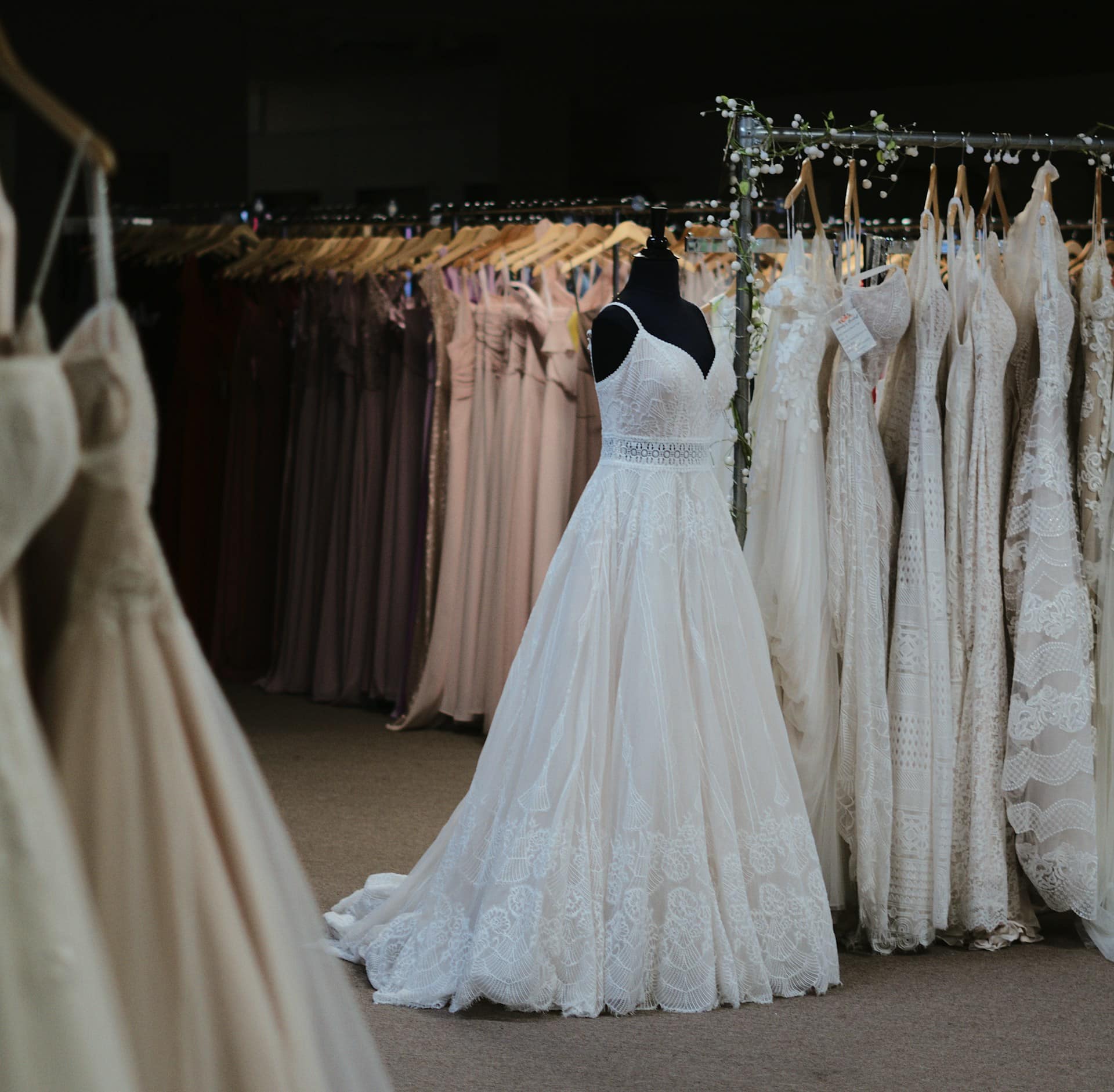What specific preparations are needed for a UK-based bridal shop to comply with consumer protection laws?

In the bustling world of the bridal industry, businesses must ensure they adhere to the relevant laws and regulations. Ensuring compliance not only safeguards the business but also enhances the trust and loyalty of brides-to-be. For a bridal shop based in the UK, the consumer protection laws are especially significant. These laws outline the rights of consumers and the responsibilities of businesses. They cover a range of issues, from product quality to financial transactions, and more. Understanding and following these laws is vital for the success and longevity of your bridal shop. In this article, we will delve into the specific preparations a UK-based bridal shop needs to make to ensure compliance with consumer protection laws.
Familiarize Yourself With Relevant Legislation
It's crucial that you familiarize yourself with the applicable consumer protection legislations. In the UK, the key pieces of legislation are the Consumer Rights Act 2015 and the Consumer Protection from Unfair Trading Regulations 2008. These laws lay down the rights of consumers when buying goods and services and protect them from unfair commercial practices.
A découvrir également : How to comply with the UK's Consumer Rights Act in an online retail business?
The Consumer Rights Act 2015 stipulates that goods sold must be of satisfactory quality, fit for purpose, and as described. As a bridal shop, you will need to ensure that your wedding gowns and accessories meet these criteria. Any discrepancy can lead to disputes and legal issues.
The Consumer Protection from Unfair Trading Regulations 2008, on the other hand, prohibit misleading or aggressive commercial practices. This includes false advertising or high-pressure sales tactics. It's important that you train your staff to accurately describe products and not pressure brides into making hasty decisions.
Avez-vous vu cela : What specific regulations pertain to the operation of drones by a UK-based media company?
Invest in a Comprehensive Business Insurance
Business insurance is a crucial aspect of managing business risks. For bridal shops, it's particularly important to have product liability insurance. This type of insurance will cover you in case a bride claims that your product caused her harm or loss.
For instance, if a bride slips on a wedding dress train and injures herself, or if a wedding dress causes an allergic reaction, product liability insurance will cover the legal and compensation costs. This is an important aspect of protection against consumer claims.
Also, consider other business insurance policies such as public liability insurance, which covers injury or damage to third parties on your premises, and professional indemnity insurance, which covers advice given to customers.
Establish Clear and Fair Contracts
One of the key ways to avoid consumer disputes and stay within the law is to establish clear and fair contracts for your bridal shop. Contracts should explicitly outline the terms of sale, including payment terms, delivery times, cancellation rights, and what happens if there are issues with the wedding dress or accessories.
The contract should be written in plain English, and all terms should be transparent and fair. Unfair contract terms can lead to legal issues and damage your shop's reputation.
Develop a Robust Complaints Handling Process
Regardless of how carefully you run your bridal shop, it's inevitable that you will face some complaints from brides. The way you handle these complaints can significantly impact your business.
Under the Consumer Rights Act 2015, consumers have the right to complain if a product or service doesn't meet the required standards. It's essential to have a robust complaints handling process in place to ensure that you deal with these complaints efficiently and fairly.
Embrace Ethical Advertising Practices
Advertising is an effective way to draw brides to your shop, but you must ensure that your promotional activities comply with consumer protection laws.
The Consumer Protection from Unfair Trading Regulations 2008 prohibits misleading advertising. This means that all claims made in your advertisements must be truthful, and any limitations or exclusions must be clearly stated.
In addition, the Equality Act 2010 prohibits discrimination in the provision of goods and services. This means that your advertising should not exclude or discriminate against anyone based on characteristics such as age, race, or sexual orientation.
Complying with consumer protection laws requires time, effort, and sometimes financial investment. However, it's a necessary aspect of running a responsible and successful business. By following the guidelines outlined above, you can run your bridal shop with the confidence that you're treating your customers fairly and operating within the law.
Be Mindful of Health Safety Regulations
Your bridal shop needs to meet specific health safety standards. You must ensure that your shop is free from any health hazards that could harm your customers. For this, you will need to carry out regular risk assessments to identify any potential dangers and take actions to mitigate them. Also, keep in mind that health safety is not just about physical safety but also about the materials used in your products.
For instance, certain fabrics and materials used in wedding dresses could cause allergic reactions in some people. Therefore, it's essential to be transparent about the materials you use in your products. Not only is this a good practice, but it is also a legal requirement under the Consumer Rights Act 2015. If a customer experiences an allergic reaction due to a wedding dress from your shop, it could lead to legal issues and damage your business reputation.
Moreover, consider cleanliness in your shop. Regular cleaning and maintenance of your shop space are essential to prevent any potential health hazards. This includes the changing rooms where brides-to-be try on wedding dresses. Cleaning products should be carefully selected to avoid any potential allergies or skin reactions.
Leverage Social Media Responsibly
In this digital age, social media plays a significant role in promoting businesses. It offers a platform to showcase your products, connect with potential customers, and build your brand. However, while leveraging social media, you must be mindful of consumer protection laws.
First, any claims you make about your products on social media must be accurate and honest. Misleading information can lead to breaches of the Consumer Protection from Unfair Trading Regulations 2008. For example, if you post a photo of a wedding dress and claim it's made from a particular material when it's not, you could potentially face legal consequences.
Second, you should be aware of data protection laws. When you collect customer information through social media, you must comply with data protection legislation. This includes obtaining explicit consent from customers before collecting their data, ensuring the data is stored securely, and only using the data for the purpose it was collected for. Not complying with data protection laws can lead to penalties and damage your shop's reputation.
Lastly, customer engagement on social media should be managed carefully. Negative comments or complaints should be handled professionally and promptly to prevent any potential escalations. It's also important to ensure that any promotional activities you run on social media, such as contests or giveaways, are fair and transparent.
Conclusion
Running a UK-based bridal shop brings with it several legal and regulatory obligations under consumer protection laws. From product quality to advertising practices, every aspect of your business operations needs to be in compliance with these laws. However, this should not be seen as a burden. Instead, consider it as a foundation for building a responsible and customer-centric business.
By familiarizing yourself with the relevant legislation, investing in comprehensive business insurance, establishing fair contracts, developing an effective complaints handling process, being mindful of health safety regulations, and leveraging social media responsibly, you can ensure your bridal shop is compliant with consumer protection laws and build a strong, reputable, and successful business. Always remember that consumer protection is not just about adhering to laws. It's about respecting and valuing your customers, which will ultimately drive the success of your bridal shop.
